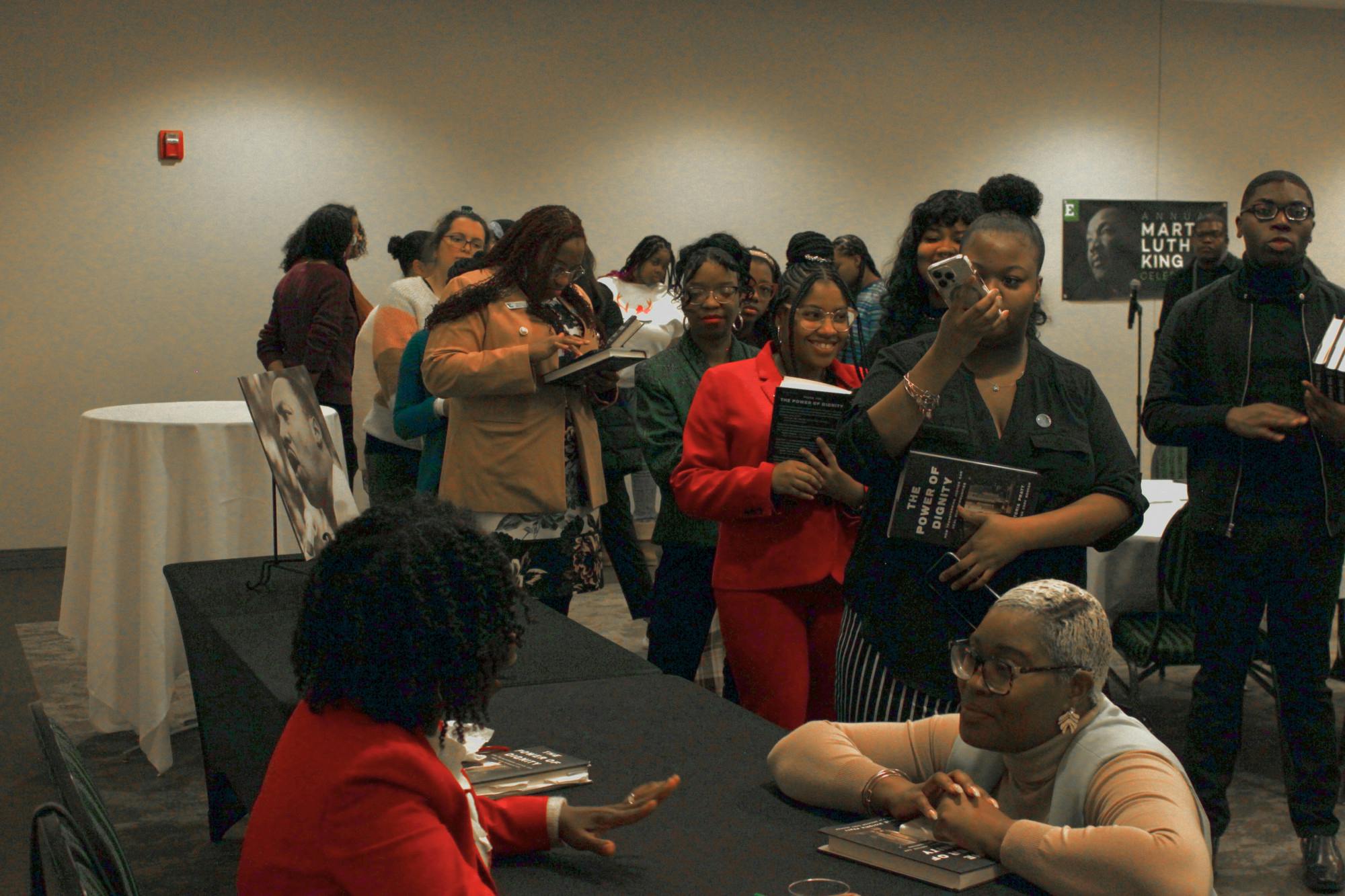Eastern Michigan University on Monday, Jan. 15 hosted their annual Martin Luther King Jr. President's Luncheon as part of a week-long celebration called "Driven By The Dream." The speaker of this event was the professor, author, and former Chief Judge Victoria Pratt.
Known for her tenure as the chief judge in Newark Municipal Court in Newark, N.J., she was a known advocate of reforming the criminal justice system. Her method called procedural justice is an alternative method to jail for low-level offenders which includes assignments such as counseling, community service, and her most notorious method, introspective essays.
"Well, you think about people who never get the opportunity to express how they feel, what they've been through, and actually who never get an opportunity to sit down and stop and actually think about the answer to the question. And the answer to the question is oftentimes what people are looking for when they're in this cycle of the criminal justice system," Pratt said. "Sometimes I would have people say to me, 'how could you have them write essays?' And I would say to them, imagine how little I would have to think of them to think they didn't have a right to express their thoughts and feelings because of some limitation that I'm going to put on them," Pratt said.
In her Ted Talk, "How Judges Can Show Respect," she mentioned how being a judge was like having "a reserved seat to a tragic reality show." Despite this, she did not see any reason to stray from her approach and drive.
"I think that anything that you care about or passionate about or want to change, you should feel emotionally invested in it. And if you're not well, you should learn to move on to your passion. So I don't think that it is the only place that that would happen. But I think that when you are really committed to change and to service, it oftentimes feels like that. Right now I'm off the bench because the bench tends to not want you to speak," Pratt said.
Growing up as a talkative child, her parents believed she would become a lawyer one day. The Black and Latina daughter of an immigrant mother and garbageman in Harlem, Pratt cites her parents especially her mother as major influences in her life.
"There were no limitations. I would always say my mother let me fly even when she didn't understand what it was I was doing, especially since her English was very limited, but she trusted. She knew her child was going to try to do some different things," Pratt said. "There's a Baldwin quote that says, children learn the most by seeing what you do. I think that's probably one of the most powerful things for a child to really watch how their parents live. And my mother truly was a servant."
"When I saw myself on the bench behaving like her, I was like, wow. Literally taking things out of what I call her playbook," Pratt said. "I'm really my mother. If I can pour a quarter of what my mother poured into me, into my son I have done a great job."
Despite the far travel to Eastern, Pratt said she wanted to come to a place raising the next generation of leaders, hoping her story motivates others just as others in the past motivated her.

Attendees of Victoria Pratt's book reading line up to get their copy of, The Power of Dignity, signed directly by her. Pratt's book focuses on procedural justice as she shares anecdotes of her experiences as a judge through her section reading and Q-and-A session in the EMU Student Center on Jan. 15, 2024.
"I am so excited to be here. I was going through my book as I was preparing for today and I realized that like three to four quotes from Dr. King are in my book, and I hadn't even realized it because of how impactful, how he lived his life and what he required of us to do. So it is truly an honor to be able to come and speak here and share my experiences on the day that has been selected to honor him."
Though she is "off the bench," Pratt still is active as an executive director at Odyssey Impact, and her consulting firm Pratt Lucien Consultants.
To learn more about Pratt, you can visit her website or read her book "The Power of Dignity: How Transforming Justice Can Heal Our Communities."









